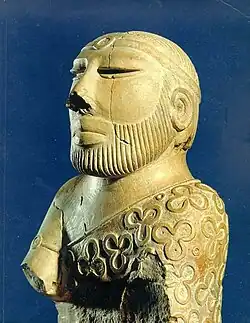| Pakistan Resolution | |
|---|---|
| Sind Legislative Assembly | |
| |
| Territorial extent |
|
| Enacted | March 1940 |
| Summary | |
| This resolution passed by Sind assembly endorsed Pakistan movement and supported Sindh's accession to a future Muslim state | |
| Status: Amended | |
| History of Pakistan |
|---|
 |
| Timeline |
|
The Sind Legislative Assembly was the first legislature in the British Raj to pass a resolution in favour of the Lahore Resolution (also known as "Pakistan Resolution") in March 1940.
Influential Sindhi activists under the supervision of G. M. Syed and other prominent leaders joined the Muslim League in 1938 at the forefront of the provincial autonomy movement. The Pakistan resolution was presented in the Sind Assembly and was historically passed by a majority, confirming Sind's accession to Pakistan, in the future.[1]

Under strong support of the Muslim League and local politicians, Sind was separated from the Bombay Presidency in 1936 and secured a legislative assembly of its own, elected on the basis of communal and minorities' representation. Sir Lancelot Graham was appointed as the first governor of Sindh by the British government on 1 April 1936. He was also the Head of the Council, which comprised 25 members, including two advisors from the Bombay Council to administer the affairs of Sindh until 1937. The British ruled the area for a century. According to English explorer Richard Burton, Sindh was one of the most restive provinces during the British Raj and was, at least originally, home to many prominent Muslim leaders such as Ubaidullah Sindhi and Muhammad Ali Jinnah who strove for greater Muslim autonomy. At the 27th Session of the Muslim League at Lahore on March 23, 1940, Sir Haji Abdullah Haroon was among those who spoke and endorsed the Pakistan Resolution.[2]
References
- ↑ "Proceedings of the Sind Legislative Assembly : Official Report" (PDF). Pas.gov.pk. Retrieved 28 July 2015.
- ↑ "Sindh`s role in Pakistan movement". www.dawn.com. Karachi, Sindh: Dawn Newspaper. 24 January 2010.